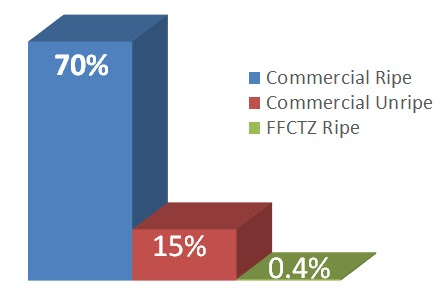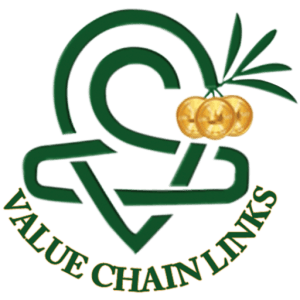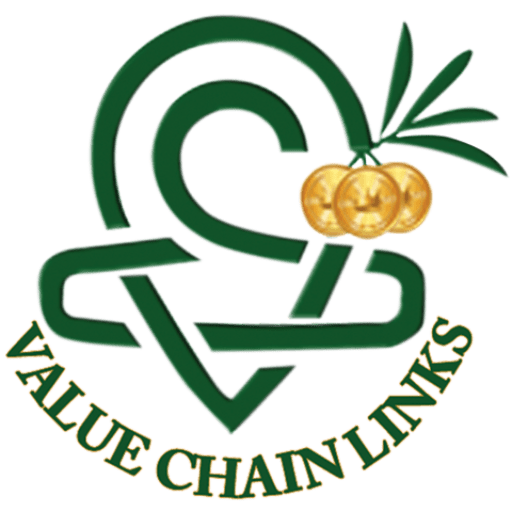WHY MANGOES’ QUALITY IN EUROPE AND USA IS LOW AND HOW YOU CAN OVERCOME IT NEXT SEASON
BY DR. NIMROD
“Consumers will buy whatever there is until there is something that outperforms it”
When I speak with European and American friends about Mangoes, I get negative responses regarding the fresh mangoes’ quality they get to buy and eat.
UNHAPPY CONSUMERS
I noticed that many people I speak with like and enjoy a good mango when having a chance.
Those people, belonging to the middle and upper class, report a high level of dissatisfaction from mangoes due to their low quality and often the need to through away many of them.

QUANTIFYING SATISFACTION
Two months ago, I finally did something I have been looking to do for a long time; finding out, by myself, what is going on there regarding mango quality and consumer satisfaction.
I posted a LinkedIn questionnaire, where I asked, “Are you satisfied with the TASTE and the general QUALITY of MANGOES in the EU and USD?“

Seeing the results, I was shocked; 71% declared that they are Not Satisfied with Mangoes’ Taste and Quality.
Could it get any worse?
THE PROBLEM
Most of the mangoes in the EU and the USA are coming from Latin America and Africa, and most of it is harvested a few weeks BEFORE the NATURAL MATURITY!
Mangoes are then treated to mature artificially (often by chemicals), but it never gains the natural good taste and smell of a naturally matured mango.
Even worse, Mangoes exported to the USA as part of the post-harvest treatment is sanitized by a hot-water bath, compromising further the fruits’ freshness, taste, and quality.
Mango quality is all about harvesting it at the right time; too early harvest and its taste will never reach potential, while too late will cause it to decay early.
THE ROOT PROBLEM
One may wonder, “why don’t the farmers wait a while and harvest the fruits when they mature and ripe?“
Good you asked!
You see, the farmers, if only they could wait, would love to harvest on time, knowing the quality will be far better.
They know that IF it were possible to ‘harvest on time’ THEN, the fruits would have more time to grow naturally on the trees.
Hence, gaining 10% to 30% additional weight, a more extended period to market the higher quality produce, gets a better price with higher customer satisfaction.
Although desired, this was impossible until today.
Why?
Because waiting for the mangoes to naturally mature means that the fruit is also becoming highly susceptible to fruit fly attack as it mature and naturally ripen.
You see, fruit flies infest the mangoes as they approach maturity, mainly at the last stage, starting from 4 weeks before harvest.
As the natural process of ripening occurs, the fruit becomes much more susceptible to fruit fly attack, at a rate of 10% to 20% additional infestation per week.
Such an attack causes colossal damage and fruit loss. The loss is in the frame of 30% to 80% of the produce and the income. Such a situation is usually followed by a total Export Ban.
Naturally, no one would risk that.
Yes, the fruit flies are the main cause for the above situation, making it the Root Problem of fresh mango export from most of Africa, Asia, and Latin America!
The case is the same with other crops in those regions, which are sensitive to fruit flies.
Dear consumer, now you understand why farmers, exporters, and supermarkets prefer marketing low-quality mangoes, harvested too early (before susceptible to fruit flies), than to market none, due to phytosanitary regulations!
It’s a painful compromise to all since everybody is losing from this situation –
• The farmer loses 50% of his potential income.
• The traders (exporters, importers, and wholesalers) are handling far fewer fruits (and lower quality) than they would like to and find it very difficult to grow their business.
• The Consumers… well, on top of the poor experience from eating a low-quality Mango, the Consumers are paying for the risk of consuming chemical residues from the failed attempt to control fruit flies.
FINALLY, THIS IS ABOUT TO CHANGE
Until recently, there was no effective solution for managing fruit flies in Africa, Asia, and Latin America. Hence, mangoes are harvested too early and not mature enough.
The mango needs to mature/ripen and get its distinctive natural characteristics for the mango to be tasty.
What is the solution?
At the end of August 2020, Biofeed, together with its Senegalese business partners, Elephant Vert Sasu, and Senegal’s crop protection authorities (DPV), conducted and completed a large-scale demo and regulation testing of a Fruit Fly Certified Trade Zone (FFCTZ) program in a large mango farm [>><<].
FFCTZ protocol, which includes a fruit fly control concept, methodology, and tools, is meant to enable large-scale export of fresh fruits during all seasons from anywhere worldwide to any market, thanks to standing up to the most stringent standards.
FFCTZ uses the FreeDome, a non-spraying, eco-friendly, crop protection technology, and additional components to form the FFCTZ package.
The outcome is a mango harvested on time, free of fruit flies, free of sprays, and free of chemical residues, at the highest quality possible, enabling excellent and fast return on investment (ROI) for ALL parties involved, and high customer satisfaction.
PAST VERSUS STATE-OF-THE-ART SOLUTION RESULTS
Typically, at the end of August, mango infestation exceeds 70% during the rainy season, and hence, there is no mango harvest in Senegal, and of course, no export.
This August, things were different, very different, as the infestation of mature/ripe mangoes in the test fields was as little as 0.4%, versus 15% fruit fly infestation of unripe mangoes in plots treated commercially by insecticide sprays, and the perennial 70% infestation.
In the FFCTZ demo farm, we managed to decrease fruit fly infestation by 99.9%!
YES, no mistake – by 99.9%!!

Fruit fly infestation rate in commercial orchards treated by sprays, traps, and sanitation versus FFCTZ where fruit fly control is by using FreeDome, a zero-spray method.
Blue – the infestation rate of ripe mangoes in commercial orchards at the end of August.
Red – same as blue but of unripe mangoes (3 weeks before ripening).
Green – the infestation rate of ripe mangoes under the FFCTZ program.
THE MEANING
From now on, growers and exporters of fresh mangoes (and other crops) should know that fruit flies are no longer a problem.
With FFCTZ protocol, it is now possible, for the first time, to export high quality and high volume fresh mangoes from anywhere to any international high-value market.
Compared to the grand, expensive, area-wide projects such as Sterile Insect Technique (SIT), often complemented with spraying, traps, and sanitation, the FFCTZ is suitable for many fruit flies and not limited to Ceratitis capitata only or mainly.
FFCTZ is extended as a service for professional farmers with farms more extensive than 50 hectares.
INCREASE YOUR INCOME FROM HIGH-QUALITY MANGOES
Value-chain elements; farmers, plant protection authorities, exporters/importers, fruit traders, and supermarket managers – from now on, your consumers can and should get the highest quality of mangoes.
In return, you will get a higher payment, translated to more income from selling more mangoes at a higher price, and higher customer satisfaction.

It is so easy to see and taste the difference. Why would anybody like to consume immature mangoes when there is a far better alternative?
| Exporters / Importers, You live in constant fear and uncertainty about the quantity and quality of produce that you can market from areas heavily infested by fruit flies, such as Africa, Asia, and Latin America. Unwillingly you take unnecessarily huge risks. From now on, this is history – no more fear, uncertainty, and unnecessary risks. On the contrary, you will have much better predictability and results! For the first time, you can secure your future; you can give accurate marketing, production, and price forecast and be confident that it will occur. When applying FFCTZ in your farms, you gain the power to plan exactly how much you will market, which week of the year, from which part of the world, to which market. Most importantly, you do all this while knowing that you market good looking, tasty, smelly, high quality produce harvested on time, free of fruit flies, free of sprays, and free of chemical residues. Time to think FREE, think QUALITY, think OPPORTUNITIES. How do I take advantage of this opportunity? Contact me so we can understand your needs and give you the best solution for your marketing needs. Please note, 1. FFCTZ is extended as a service for professional farmers with farms more extensive than 50 hectares 2. My calendar fills up fast. 2021 is almost full, and we are already scheduled for 2022. Hurry up and make sure you do not miss the opportunity to be the leader of your market and create yourself and your clients an ‘unfear’ advantage. Moving from Lose-Lose to Win-Win- Win-Win … for all partners. CONSUMERS We are all consumers, and none of us should settle for less than the tastiest mangoes, free of fruit flies, free of chemicals, looking good, smelling wonderful…Here is a brief presentation to the difference between low and high-quality mango and why you want your mango to be harvest on time and to look like [>><<]. Just Enjoy, Nature. |
| Contact me if you wish to discuss your options to kick-start your economy or national scale operation using advanced economic models, protocols, and field-tested proven agricultural technologies.Let’s see how together we can take a GIANT step forward and bring high-value business and market results. |

